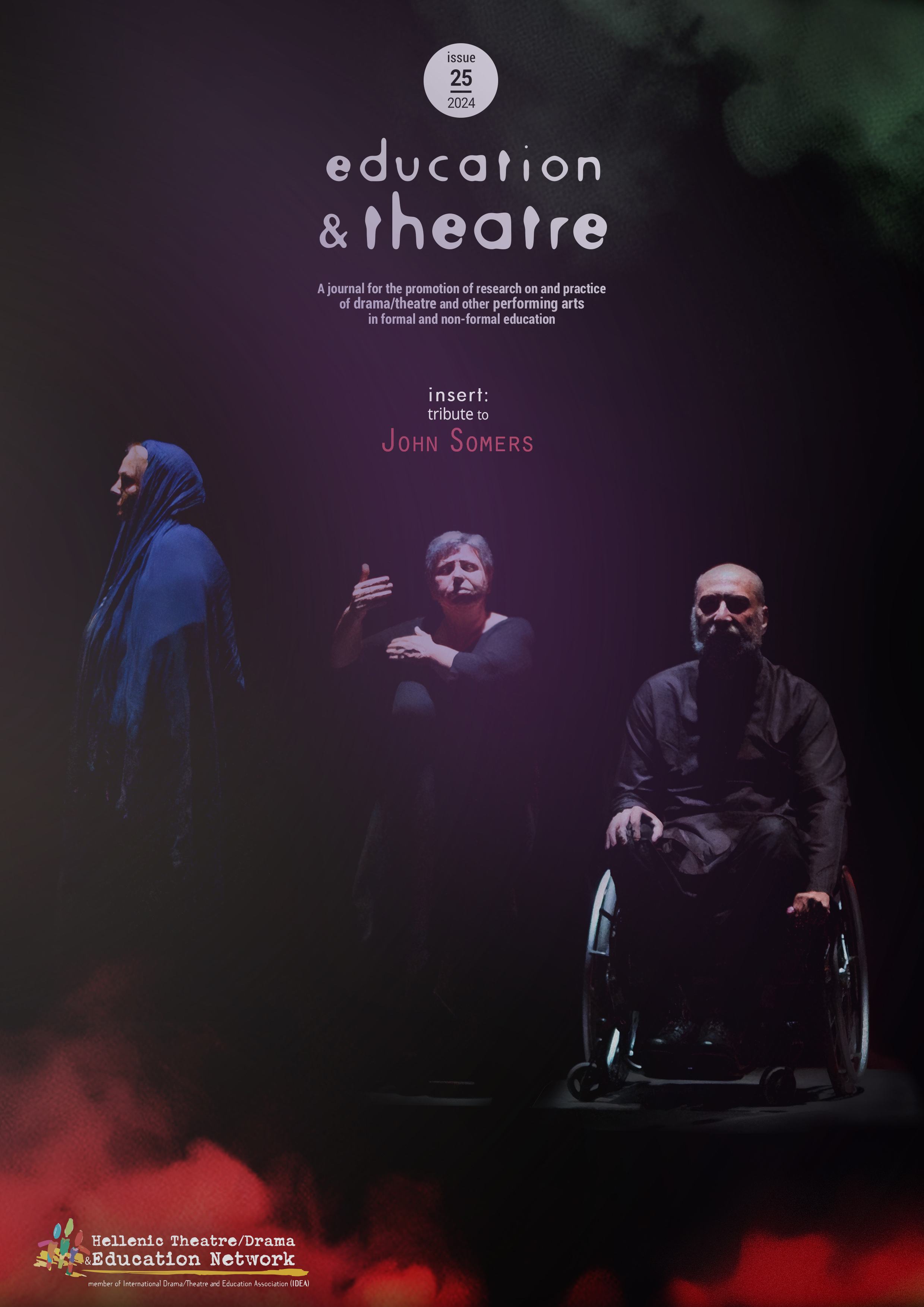The utilisation of digital drama in the educational process Enhancing the role of the student

Abstract
This paper is an extract from the author’s doctoral thesis on digital drama and its utilisation in the educational process (Karantzouli, 2023). Through a review of international literature, the main objective is to establish that activities combining the techniques of theatre in education with new technologies and digital media can enhance the role that students can play in a student-centred educational process. The possibility of exploring the student’s “identity” through the activities of the hybrid form of digital drama is analysed and finally, reference is made to the aesthetic cultivation that can be achieved for students through relevant activities. The paper aims to highlight the great potential as well as the benefits that can be achieved by raising questions and providing food for thought and discussion.
Article Details
- How to Cite
-
Karantzouli, E. (2024). The utilisation of digital drama in the educational process Enhancing the role of the student. Education & Theatre, 25, 36–47. https://doi.org/10.12681/edth.37316
- Section
- Research Articles





